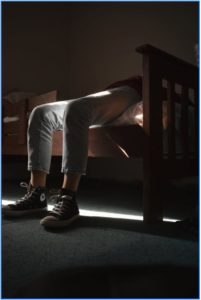Creating a safe and comfortable home environment is crucial for all families, but it holds a special significance for those with autistic children. These children experience the world differently, with heightened sensitivities to their surroundings.
Did you know that according to a study by the Autism Research Institute, environmental factors play a significant role in the well-being of individuals with autism? This includes everything within the home, from the colour of the walls to the quality of the living room windows.
This article shares how particular home improvements can contribute to a more secure and serene home, making a significant difference for families with autistic children.

Understanding Sensory Needs in Autism
Children with autism often perceive the world in unique ways, with their senses either heightened or dulled compared to neurotypical individuals. This sensory processing difference can make everyday environments challenging.
Over 96% of children with ASD report hyper- and hypo-sensitivities in multiple domains, indicating a high prevalence of sensory processing differences in this population. These sensory sensitivities can range from mild to severe and persist into adulthood. The impact of these sensory differences is significant, affecting daily experiences and interactions with the environment, including the home setting.
When analyzing home environments, these sensitivities mean that even small elements can have a significant impact. For example, windows can either exacerbate sensory overload with harsh sunlight and loud external noises or provide a calming effect with soft, natural light and sound insulation, playing a crucial role in the daily life of children with autism.
How Modern Windows Create a Safe Space and Improve Your Home
Windows are more than just a source of light; they are a vital component in shaping a home’s sensory environment. For a child with autism, the type of window in their home can significantly influence their comfort and safety.
Poorly insulated windows can let in not only drafts but also external noises, which can be distressing for children sensitive to sound. Moreover, windows that don’t adequately filter sunlight can create harsh glare, another potential source of discomfort.
On the other hand, well-designed living room windows can greatly enhance the living space for an autistic child:
- Features like double-glazing can reduce noise pollution, creating a quieter, more serene environment.
- Tinted or UV-coated windows can soften incoming light, preventing harsh glares.
- Energy efficiency is another key benefit. Properly insulated windows can better regulate indoor temperatures, creating a more comfortable living space without drastic temperature fluctuations. This is crucial for children with autism, who may be particularly sensitive to environmental changes.
- Additionally, windows with safety locks and shatter-proof glass can address safety concerns, giving parents peace of mind.
Thus, the right windows can transform a home into a safe place for autistic children, where they feel secure and at ease.
Practical Tips for Choosing the Right Windows
When selecting windows for a home with an autistic child, there are several key factors to consider:
- Noise insulation. Double or triple-glazed windows can effectively reduce external noise, creating a calmer indoor environment. But you can further equip new windows with additional soundproofing features or get noise-cancelling window blinds to guarantee peace of mind within your space.
- Safety. Opt for windows with modern safety features like shatter-proof glass and secure multi-point locks.
- Light control. Windows that can filter or soften sunlight can prevent harsh glares, which can be unsettling for some autistic children. Tinted or UV-coated glass can be a good option here.
- Aesthetics. Choose window styles and colours that align with your child’s sensory preferences. A visually pleasing environment can contribute significantly to their comfort and happiness.
By keeping these factors in mind, you can choose windows that not only enhance the safety and comfort of your home but also cater to your child’s unique needs.
Other Home Improvements to Create a Safe and Comfortable Space
While windows play a crucial role in creating a sensory-friendly home, there are other aspects to consider for the overall well-being of a child with autism.
- Lighting. Soft, non-flickering lights can reduce sensory overload. LED bulbs that mimic natural light are often a good choice, as they provide a consistent light source without harsh glares.
- Furniture and layout. Opt for furniture with rounded edges and soft textures to minimize the risk of injury and provide tactile comfort. A well-organized and clutter-free space can help reduce anxiety and sensory overload.
- Acoustics. Soft furnishings like carpets and curtains can help absorb sound, creating a quieter environment. This is especially important in rooms where the child spends much time.
- Air quality. Ensure good ventilation and consider using air purifiers to maintain a clean and healthy indoor environment.
Finally, involve your child in the decision-making process where possible. This ensures that the changes align with their preferences and needs, making them feel more comfortable and secure in their home environment.
By addressing these various elements, you can create a holistic and nurturing environment that caters to your children’s sensory and safety needs.
This is a contributed post.




